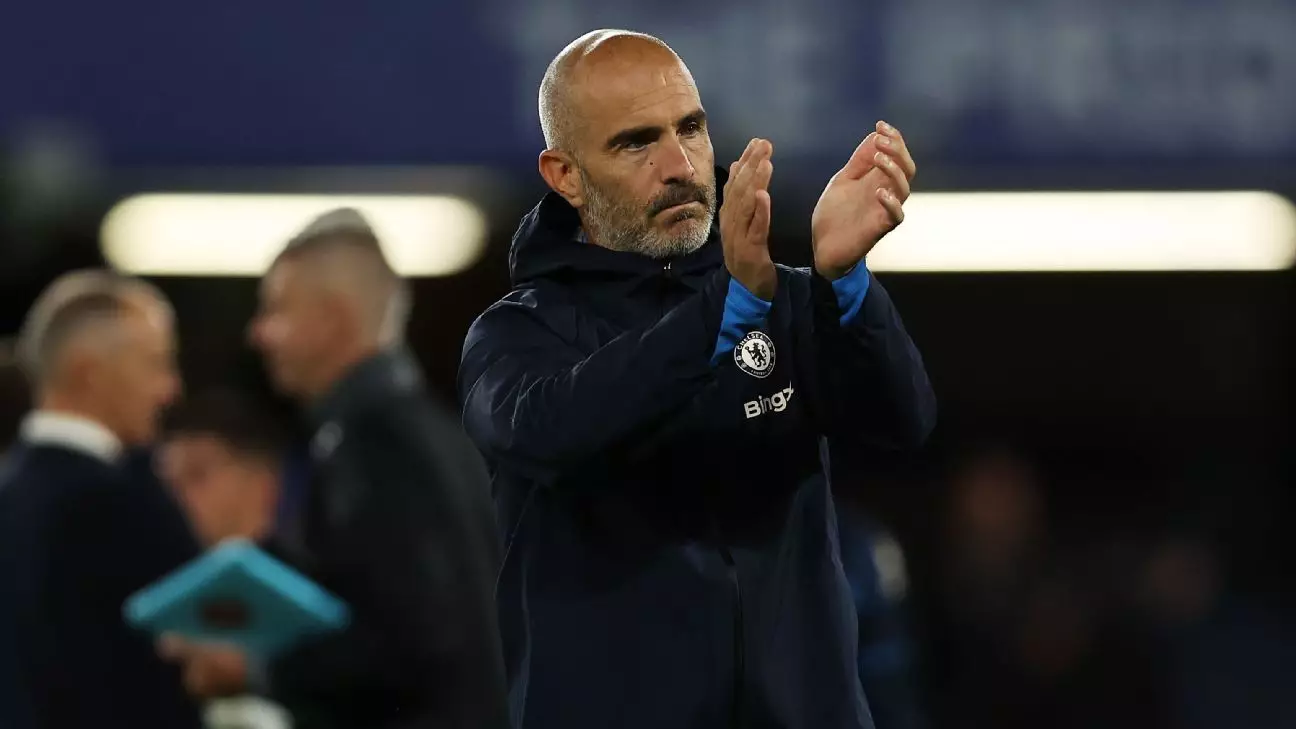Chelsea Football Club has undergone significant transformations since Enzo Maresca took the helm. The team, once competing at the top of the Premier League, now finds itself grappling with inconsistency. However, one notable point of stability has emerged in the form of assurance from Jonathan Goldstein, a key club director. Despite a concerning dip in performance that has seen Chelsea secure only two wins in their last nine league outings, Goldstein has expressed unwavering confidence in Maresca’s position, declaring him “100%” safe from the sack this season.
Maresca’s trajectory at Chelsea began on a positive note, drawing optimism from fans and pundits alike. His previous success at Leicester City paved the way for high hopes as he arrived in London. Early into the season, Chelsea was firmly placed in the Premier League title race, favorably comparing themselves to rivals such as Liverpool and Arsenal. However, the inconsistency of results post-December, particularly highlighted by a disheartening 3-0 defeat to Brighton, has cast shadows over Maresca’s managerial competency. This sudden downturn raises poignant questions regarding team management, player performance, and the strategies deployed by the coaching staff.
Despite the lackluster recent form, Goldstein’s public backing of Maresca serves as a testament to the club’s management philosophy. Historically, Chelsea has been known for a quick-trigger approach regarding managerial changes—a pattern that has defined its tumultuous past. Yet, Goldstein’s remarks suggest a shift towards a more patient and considered strategy, aimed at allowing Maresca time to foster team cohesion and development. He recognizes not just the raw numbers but the qualitative aspects of Maresca’s impact on the squad, emphasizing that the manager has been instrumental in integrating new talents and solidifying team dynamics.
As Chelsea prepares for their forthcoming clash against Aston Villa, the stakes could not be higher. This match not only has potential implications for their immediate league standing but also for their aspirations of European competition next season. The pressure to perform will weigh heavily on the players as well as Maresca, who remains focused on his goal of securing a top-four finish—an aim he cemented earlier in the campaign, even when Chelsea was riding the wave of optimism.
While the road ahead is fraught with challenges, Maresca’s position at Chelsea appears more resilient than many might expect. With the unwavering support from Goldstein and the club hierarchy, there lies an opportunity for reflection, evaluation, and ultimately redemption. The time ahead will be crucial—not just for results but for crafting a long-term vision that can restore Chelsea’s stature in the Premier League and European football. Whatever the outcome may be, one thing remains apparent: the club is prepared to weather the storm with Maresca at the helm, at least for the season.

